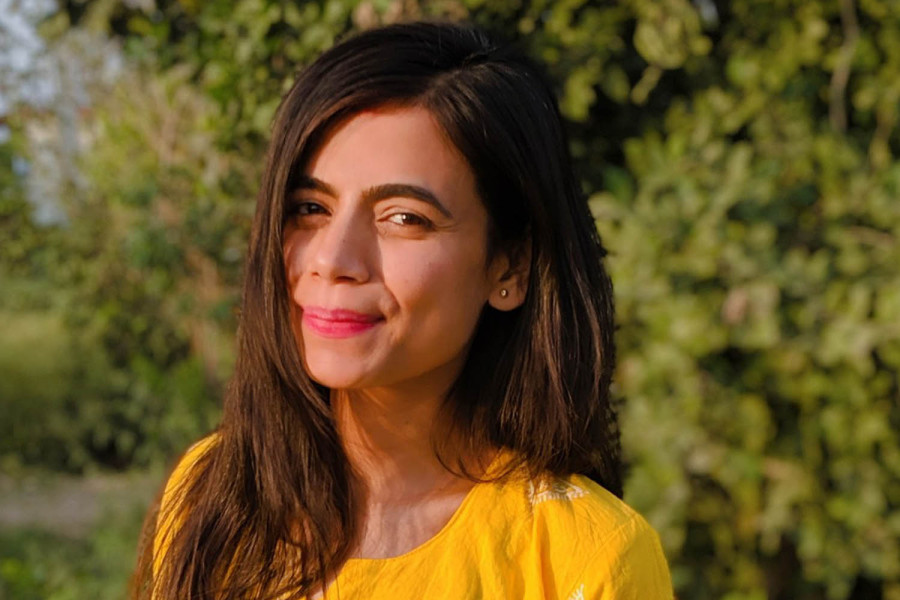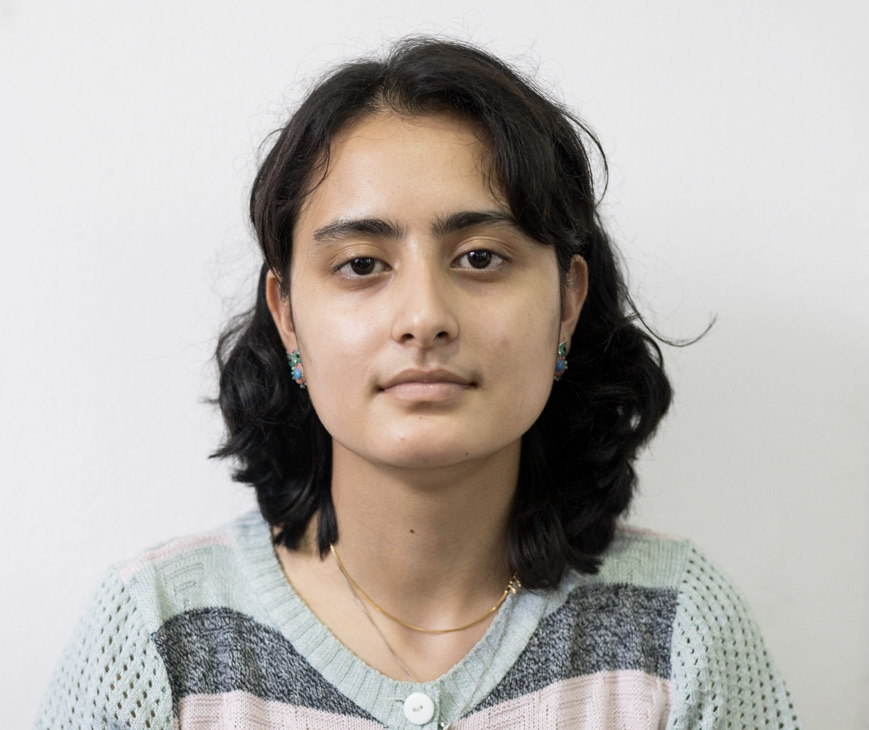Culture & Lifestyle
‘Filmmakers don’t try hard enough to make films feminist’
Filmmaker Sahara Sharma on the Nepali film industry and feminism (or lack thereof) and how Nepali filmmakers can learn to make films that are more gender-sensitive.
Urza Acharya
Sahara Sharma is a New York-based filmmaker from Nepal. Sharma’s 2013 film ‘Chasing Rainbows’ concerning sexuality, migration, and despair among Nepali adolescents, was her debut TV feature. The movie won the Nepal Panorama Category at the 2013 Kathmandu International Mountain Film Festival (KIMFF), where it was shown as the opening feature. Moreover, the movie took home the Jury Prize at the Toronto Nepali Film Festival in 2014.
Sharma started Gauthali Entertainment—a feminist filmmaking platform—with the filmmaker, critic and educator Abhimanyu Dixit. Currently, Sharma is developing another film titled ‘My Share of Sky’ which was selected under the open-doors consultancy at the Locarno Film Festival and was also given the Rotterdam Lab Award.
The Post’s Urza Acharya sat with Sharma to talk about the Nepali film industry and feminism (or lack thereof), and how Nepali filmmakers can learn how to make films that are more gender-sensitive.
Are Nepali films feminist?
Sadly, no. At least not most of them. But I don’t think filmmakers here are purposely trying to harm women. It’s just that they are stuck in the idea of the binary—a hero and a villain. And the woman comes somewhere in between. She is always the damsel in distress. Or she is the ever-giving, nurturing mother. Nepali films aren’t feminist because the makers simply don’t put in enough hard work.
But at the same time, I don’t expect Nepali filmmakers to create Greta Gerwig’s ‘Ladybird’. I just wish they would understand that, like humans, characters in films can be complex and that women are more than just supporting one-dimensional characters.
When I showed my script to two of my well-meaning male friends, they told me, “The mother in your script is too rude. How will the audience gel with a rude mother?” The media we consume and the films we see have conditioned us into believing the idea of eternal femininity—that women (especially mothers) are always kind, loving and nurturing. There simply is no space for women in Nepali films to become anything else.
Even in Nepal, some have tried to make ‘women-centric’ films. What are your thoughts on them?
‘Women empowerment’ written by male writers and, in fact, all over the world, is an incredibly narrow idea of what a strong woman is. A strong woman isn’t just a woman that wears black leather pants and rides a bullet bike. Frankly, stop it with the leather pants! They are uncomfortable, and nobody should wear them. Even a ‘strong woman’ is an extension of the male fantasy. The ‘empowered woman’ in these contexts is simply a woman who starts behaving like ‘a hero’—violent, angry. She’s always a fighter.
Are our mothers not strong? They go through so much, and patriarchy affects their lives in sinister ways. But still, they manage to walk with such grace. Now that, to me, is a strong woman.
Similarly, some want to enforce a rigid idea of western feminism into the Nepali context. But that never works. Because the culture, as well as the film industry here, is totally different. People should realise that feminism is a huge and ever-evolving discourse. There are ideas of intersectionality, sexuality, marxism and many others under feminism. It is problematic to stick to one particular narrative of feminism—which is, more often than not, white feminism—and try to replicate it here in Nepal. A blanket approach is never good. This is why it’s important to do your research.
What can scriptwriters do to write more feminist films?
I think much of the issue begins with the writing. It is no secret that Nepali films are very much inspired by Bollywood. Especially the 90s Bollywood with the hero and the villain, the dances and the grandeur. But even Bollywood has evolved. However, we’re still stuck in the 90s.
The most important thing a scriptwriter can do is learn how to check your biases. Whenever I write a scene, I pause and ask myself. Where did I get the inspiration from? And more often than not, it’s Bollywood. Bollywood is so ingrained in our heads that we can’t think of any other way to write a character than what we’ve seen in Bollywood films. I’ve had to check myself repeatedly and question why the women in my script are behaving the way they are. Am I actually creating a complex, nuanced and unique character, or am I just taking the easy way and relying on tropes?
There should be questioning and constant self-reflection among scriptwriters. Male writers should put in the work. Because let me tell you, women are exhausted. They are tired of having to explain constantly how awful and untrue the portrayals of women are in cinema. There are many reasons for women to be angry. But at the same time, it’s all a process. If it takes a few hours of your day to stop an incredibly insensitive script from getting made, give criticism to your male counterparts. Tell them what works and what doesn’t. Point out their biases. As I got older, I personally realised that I couldn’t just be angry; I should also teach people around me ways how to make a film more nuanced.
Why do you think mainstream Nepali films have such one-dimensional portrayals of women?
The thing about the Nepali film industry is that it’s very small. There’s very little money, and the films are barely surviving. Also, there is an over-reliance on ‘stars’—not actors—but celebrities that live glamorous lives. As there aren’t many production institutions, the movies made by Nepalis—who are often those who have saved up enough while abroad—want to make a movie for the sake of making a movie. Many don’t even know how the industry works. But what they do know is that they want returns.
So, producers and directors make films that guarantee the minimum return. One famous actor, a few bad jokes that’ll ensure a few laughs, a few songs that’ll be distributed by a popular music house. That’s all. Now, where in this process do you see space for feminism? Makers are simply thinking about how to break even and maybe squeeze in a profit. The story will always be the one that’s tried and tested. So feminism never makes it to the table.
But at the same time, perhaps it’s not right to become so cynical. When I was looking for people to finance my upcoming film, I met two investors who wanted to invest and make feminist films. That made me hopeful. Maybe in five years, the two will become twenty. And one day, surely, a mainstream feminist film might make it to the big screen.
Do you think the feminist film discourse, at least in Nepal, is rooted in some level of privilege?
One thing that I strongly believe in is that you can and should make feminist films. But it is harmful to villainise an individual, especially other female filmmakers, for not being able to come up with something that isn’t feminist enough. I will never go to a village and berate the women for not standing up for their rights. They already go through so much. How can I demand anything when I know nothing of the reality they are living through?
I admit that the fact that I get to make films at all, work on them for years without worrying and have the time and resources to send them to festivals (which always requires a good command of the English language) is because of privilege. Many short films that are made independently, like mine, do have a more nuanced approach to telling stories of women and other otherised individuals. They make it to big festivals, and some even win. And that’s not a bad thing. But we have to democratise the process.
Those with the resources have to act as bridges. When I was young and only starting out, nobody helped me figure out the complex and incredibly difficult process of applying to film festivals. At the time, there were Nepali films that had gone to big festivals. But this clique of filmmakers was an all-male club, and they kept all the resources and information to themselves. I don’t want that to happen. So Gauthali plans to open a program where we facilitate young female filmmakers’ application to film festivals.
Lastly, how can one make a feminist film?
There is no strict set of rules. If only women were to get access to resources—from education to equipment—the entire process itself would inherently be feminist. The main thing is access—for women and otherised communities. As long as we don’t have women in all the areas of movie making, from screenwriting to directing to editing to casting, films will continue being written for the male gaze.
A feminist film won’t just have a badass female warrior character because that’s not the only time a woman’s story is interesting enough to be told. In fact, a feminist film celebrates women in all forms, from all regions, across all countries and races.




 9.83°C Kathmandu
9.83°C Kathmandu

.jpg&w=200&height=120)













